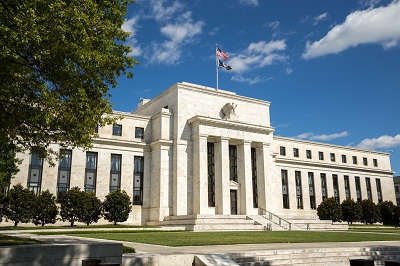This episode was recorded before a live audience at the Cato Institute and featured GMU economist Lawrence White. The focus of the conversation was a new book edited by White offering suggestions for reform of the U.S. monetary system. 
1. Approximately twenty minutes into the conversation, Roberts asks White about the ability of individuals to write (legally binding) contracts in alternative currencies, such as Bitcoin or gold. White replies such ability is “a little bit up in the air.” Should individuals be able to write contracts in alternative currencies? Explain. (Brush up on how Bitcoin works and the role trust plays in contracting in this episode with Bitcoin’s Andresen from last year.)
2. In discussing the Taylor Rule, Roberts says it evolved as a description of, rather than a prescription for, monetary policy. Revisit this Jeffrey Rogers Hummel Feature Article. What is the Taylor Rule, and why does Hummel argue it’s ineffective? How might Taylor respond? Listen to his discussion of the Taylor Rule, here.
3. Now it’s your turn to play monetary policy-maker. What should the government’s role be in the monetary supply? Nominal GDP targeting by the Fed, as EconLog’s Scott Sumner recommends? The Fed under the Taylor Rule? A gold standard? Or should the government step aside and let private suppliers create reliable money? Whatever you choose as your ideal, discuss the pluses and minuses of your approach relative to another.


READER COMMENTS
Mike Fellman
Mar 16 2015 at 8:08am
3. Private currencies (eg, privately minted coins, bitcoin, ect) are not money in the modern sense. The historical record is abundantly clear. Money did not emerge spontaneously from a “broth of barter.” Rather, it was created by governments with the express purpose of diverting real wealth from the private sector public use. Taxes, not some abstract notion of a greater fool, drive money. So long as the US government only accepts US dollars in payment of taxes, the US dollar will remain the medium of payment in the United States.
As far as privately issued money is concerned, 97 percent of all money is already privately issued in the form of checking accounts. Banks are not mere intermediaries between savers and borrowers. Rather, they create money endogenously within the banking system when they ‘fund’ loans by issuing checking accounts. Under a gold standard, this happened when banks ‘funded’ loans by issuing new notes backed by fractional gold reserves. The key point is that loans were created BEFORE deposits, not the other way around.
I will concede that the free banking system in the US could have been better designed, but free banking still cannot solve the problem of a system wide liquity crisis. True, an individual bank, if it is solvent, should not have problems obtaining financing even under a free banking system. However, history is full of examples of solvent banks because the public suddenly lost faith in the banking sector because of a few bad actors. Without a theoretically unlimited liquidity backstop from the Fed and deposit isurance from the FDIC, bad behavior on the part of Citi and BoA would have brought runs onto Wells Fargo and JP Morgan Chase back in 2008. What was a severe crisis could have snowballed into an complete implosion of the world economy with governments powerless to act.
Andrew_FL
Mar 16 2015 at 12:16pm
With regard to 1:
I think the real problem is, you could write a contract specifying payment in gold or bitcoin, but legal tender laws would force one to accept dollars In lieu of gold or bitcoin, if the person obligated to pay prefers that. “United States coins and currency (including Federal reserve notes and circulating notes of Federal reserve banks and national banks) are legal tender for all debts, public charges, taxes, and dues. Foreign gold or silver coins are not legal tender for debts.” Keywords here being all debts, public charges, taxes, and dues.
@Mike Fellman-“it was created by governments with the express purpose of diverting real wealth from the private sector public use.”
Sorry but this (ie Chartalism) makes absolutely no sense. Why does the government want to receive money as payment for it’s taxes? How is the money already wealth before it is useful for payment in the form of taxes? Chartalism has no logical answer to this question, but Menger does. The government chooses to demand payment in the already emergent medium of exchange, because the government will be able to buy things with it.
“Without a theoretically unlimited liquidity backstop from the Fed and deposit isurance from the FDIC, bad behavior on the part of Citi and BoA would have brought runs onto Wells Fargo and JP Morgan Chase back in 2008.”
The unlimited backstop is the cause of the bad behavior in the first place.
Comments are closed.